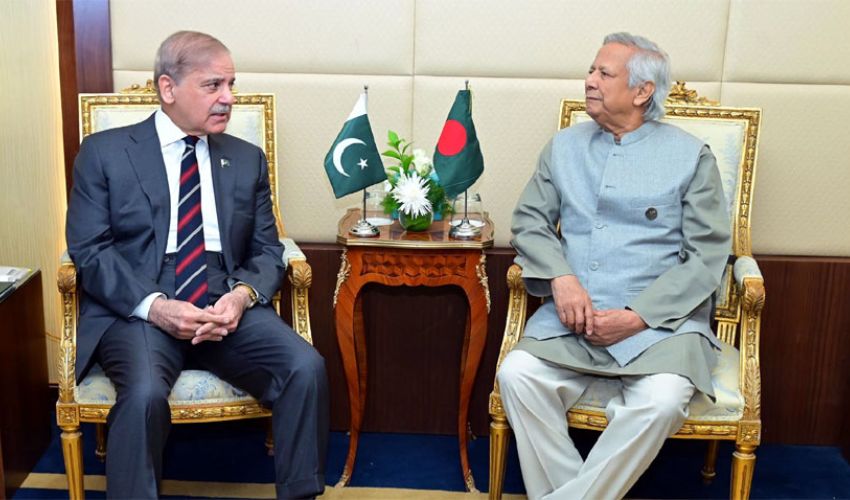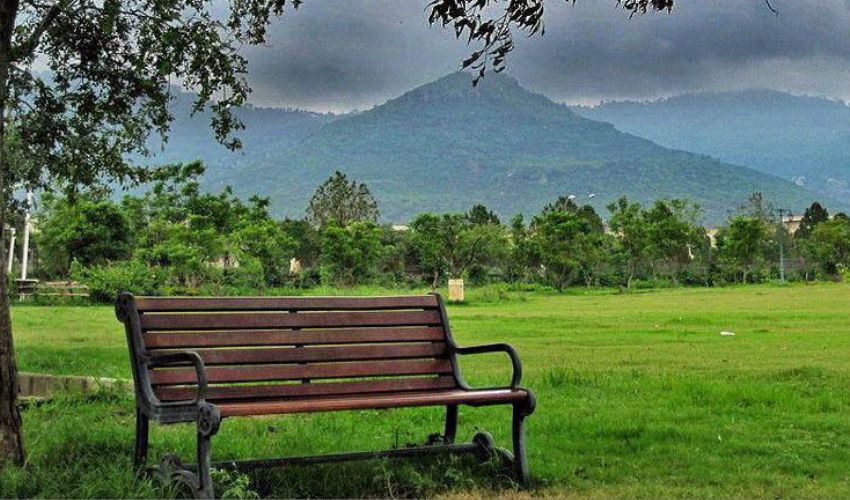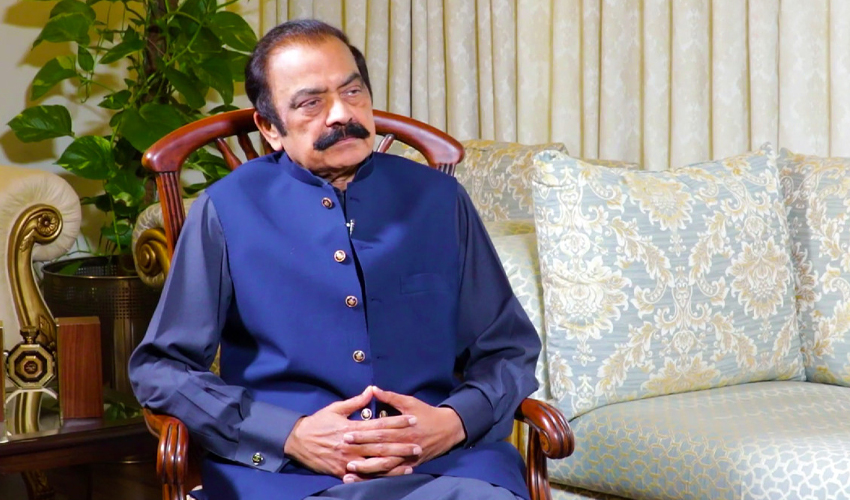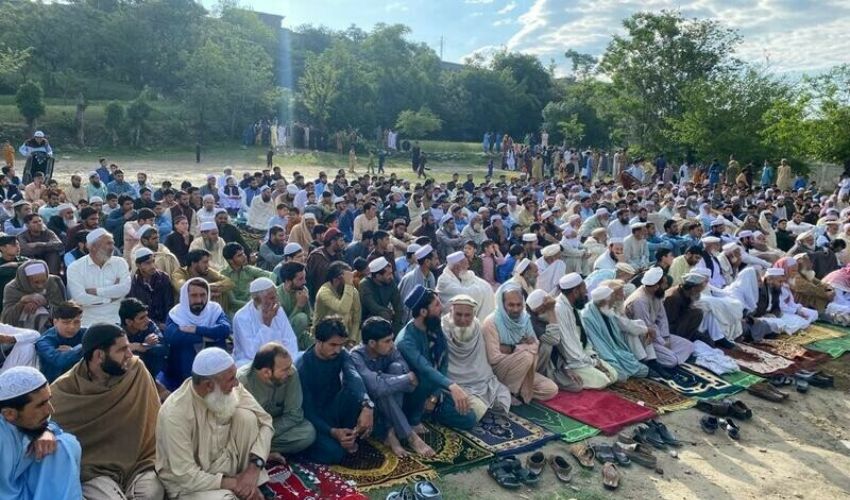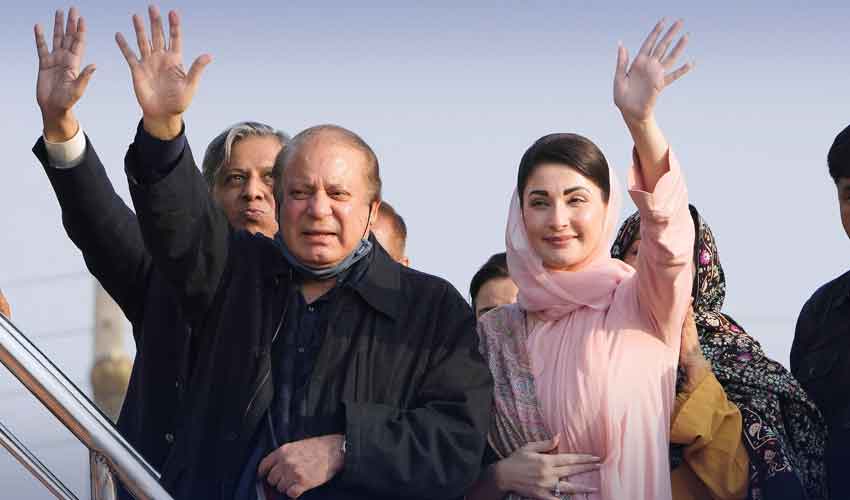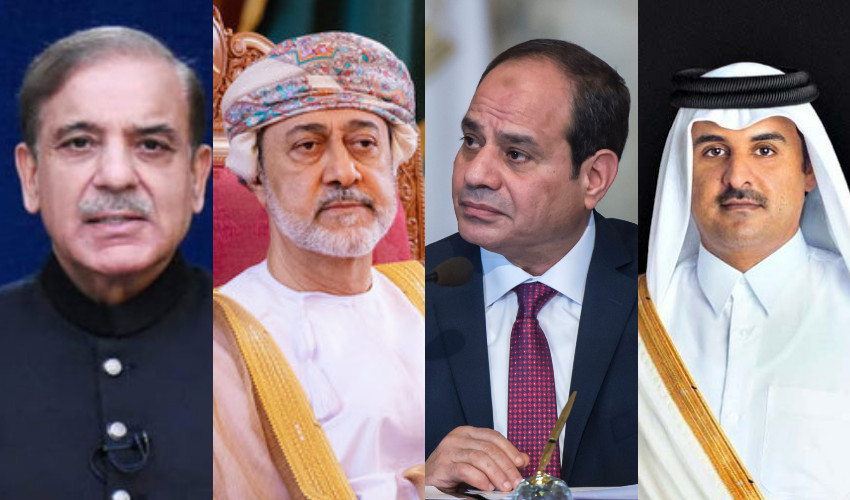Prominent opposition leaders gathered in Islamabad for a conference, titled 'Supremacy of the Constitution and Rule of Law', where they strongly criticized the government over constitutional violations, legal amendments, and restrictions on political gatherings.
The event, organized by an opposition alliance, faced multiple venue changes and heavy police presence, which leaders condemned as an attempt to suppress democratic discourse.
Demands for constitutional supremacy
Mahmood Khan Achakzai, head of the Tehreek Tahafuz Ayeen-e-Pakistan alliance, stressed that the people of Pakistan want a direct role in governance. He blamed the "doctrine of necessity" for weakening the country's system and preventing the benefits of independence from reaching the common people.
"Humans naturally desire participation in governance. The fruits of our independence in August 1947 have not trickled down to the grassroots level. We have not given our people a part of the right to governance. Peace and justice are intertwined terms. Without justice, peace cannot prevail," Achakzai asserted.
He further stated that those who seek their rights are met with a volley of allegations. He further alleged that before the general elections, the current National Assembly speaker visited Quetta and claimed they would secure a two-thirds majority.
"They even found out where I was going to contest my election from," he said.
Criticism of PECA law and legislation
Shahid Khaqan Abbasi, convenor of Awam Pakistan Party, denounced recent legislative changes from the current parliament, particularly the Prevention of Electronic Crimes Act (PECA), stating that they undermine the spirit of the Constitution.
"Laws and constitutional amendments have been made to weaken the justice system. The PECA law and other restrictive regulations are black laws aimed at suppressing public gatherings and freedom of expression. A constitutional amendment was passed overnight, contradicting democratic values," he said.
The former prime minister further said that a consensus was needed before forming any Grand Opposition Alliance.
The former prime minister also stated that the conference had invited journalists, constitutional experts, and intellectuals to discuss pressing national issues. "Unfortunately, we are not even allowed to speak. This is deeply regrettable," he said.
Abbasi also expressed concern over the judiciary's inaction on constitutional matters. "It is shocking that the chief justice of Pakistan cannot hear constitutional cases. Even international organizations are astonished by this," he remarked. He claimed that even institutions like the International Monetary Fund (IMF) were worried about Pakistan's legal and governance issues.
Alleged suppression of event
Leader of the Opposition in the National Assembly Omer Ayub alleged that the government violated the Constitution and law to obstruct the conference using security agencies.
"There are intelligence personnel and police stationed outside. Three different venues were changed for this event. Our Secretary General Salman Akram Raja suddenly had an arrest warrant issued against him yesterday out of the blue. The government is actively trying to block discussions on the supremacy of the Constitution and rule of law," Ayub claimed.
He further criticized the authorities for disregarding the rule of law and preventing open dialogue on constitutional matters.
Fehmida Mirza clarifies legal action
Former National Assembly speaker Dr Fehmida Mirza stated that she did not challenge her election results but instead approached the court against the 26th Amendment.
"Today, there is no such thing as a functioning National Assembly," she remarked, criticizing the state of parliamentary affairs.
Dr. Mirza emphasized the need for stronger institutions, including the military and other state bodies, while advocating for press freedom and the elimination of symbols of oppression. "The media must be free, and the remnants of slavery must be eradicated," she asserted.
She also condemned the roadblocks set up to hinder the conference, stating that such actions contradict the spirit of democracy.
"We have deep sympathy for this country and want to find solutions to its problems. I belong to the party of Pakistan, not any individual faction," she said.
Expressing concern over the growing disillusionment among the youth, she added, "Everyone can see who truly controls the system, but our younger generation is losing hope."
Salman Akram Raja calls for end to decades-long domination
Addressing the conference, lawyer, and politician Salman Akram Raja questioned whether Pakistan could break free from the dominance that has persisted for 70 years.
"I believe this domination must be completely dismantled," he declared.
He highlighted the growing support for PTI in recent years, stating that many middle-class individuals have joined the party. "We must place our trust in this movement," he urged.
Political and economic stability linked
The speakers emphasized that Pakistan cannot achieve economic stability without ensuring political stability. They called for an end to arbitrary legal amendments and urged all political forces to unite in protecting constitutional rights.
The conference ended with leaders agreeing that upholding the Constitution is the first step toward meaningful political change in the country. They also said that economic stability is not possible until political stability is achieved in the country.










